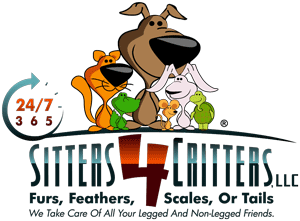Understanding Your First Amendment Right to Free Speech as a Pet Owner in Pennsylvania
As pet owners, we cherish the bond with our animals, and this often becomes a medium through which we express ourselves. The First Amendment to the U.S. Constitution, which applies to the states through the Fourteenth Amendment, prohibits the government from unduly restricting freedom of speech. But how does this fundamental right interact with our roles and experiences as pet owners?
The Scope of Free Speech for Pet Owners
It’s important to recognize that the First Amendment primarily addresses government-imposed restrictions on speech. It extends beyond spoken words to encompass various forms of expression, including artistic works and symbolic acts. This includes actions like pet-centric art, literature, and even the display of opinionated pet tags or clothing, allowing you to communicate your views and lifestyle choices through your furry companions.
Unlawful Restraints on Pet-Related Speech
Governmental restrictions that are likely to be deemed unlawful include prior restraints and vague or overbroad laws. As a pet owner, expressing controversial opinions through your pet’s representation—whether by a custom pet outfit bearing a political slogan or a mural on your fence featuring animal caricatures with opinionated messages—falls under protected speech rights. These are areas where the law stands to protect your expression against undue censorship [CNN]
Notable Cases Impacting Expression
While not specific to pet ownership, landmark cases such as Texas v. Johnson and Tinker v. Des Moines outline broader principles of expression that protect diverse forms of speech, including symbolic actions that can be paralleled in the way we may choose to represent our viewpoints through our pets.
Permissible Restrictions on Free Speech for Pet Owners
Even as pet owners, we must be mindful that some types of speech receive less protection. Speech that incites imminent lawless action or defames others falls outside First Amendment protection. Additionally, expressions involving pets that might be deemed obscene or misleading, particularly in commercial settings like pet businesses, are subjected to lawful restrictions.

Free Speech in Specific Contexts for Pet Owners
Residential Communities (HOAs)
In homeowner associations, reasonable restrictions may apply to speech in common areas. For instance, pet-themed signs in yards or community spaces must adhere to any guidelines set forth by the HOA to ensure they are content-neutral and serve legitimate purposes. Yet, these restrictions face greater scrutiny when it comes to the interiors of pet owners’ private residences, where expression is more protected.
Online Pet Forums
Just as social media forums manage content, online platforms specific to pet discussions can moderate based on rules set forth by the platform. Although private, these forums are a robust venue for expressing ideas and learning from one another about shared pet interests.
Understanding these principles enables you as a pet owner to enjoy your right to express yourself and advocate through your life with your animal companions, all while being mindful of the limitations imposed by law. If you navigate a situation where you believe your free speech rights—as related to pet ownership—have been violated, consulting with an experienced constitutional rights attorney can help protect and uphold those freedoms.

